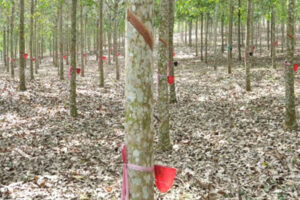Indonesia enhances forest monitoring to comply with EU deforestation law, impacting rubber industry
Jakarta, Indonesia – Indonesia is ramping up its forest monitoring efforts to comply with the European Union Deforestation Regulation (EUDR), which is set to enforce stringent requirements on commodity exports, including rubber. The EUDR aims to prevent deforestation-linked products from entering the EU market, impacting major exports such as palm oil, timber, coffee, and rubber.
To meet these new standards, Indonesia has introduced a cutting-edge platform, Ground Truthed.id (GTID), which combines field-based evidence and geolocation data to detect and document environmental violations in real time. This initiative is crucial for the rubber industry, which often faces challenges in traceability and sustainability.
GTID emphasizes collaboration with Indigenous peoples, civil society, and law enforcement, using a verification process to turn grassroots reports into legally actionable cases. This bottom-up approach ensures that data reflect real-world conditions, making it easier to track supply chain irregularities, especially in remote areas.
The rubber industry, a significant part of Indonesia’s economy, must adapt to these new monitoring tools to ensure compliance with the EUDR. The regulation requires detailed evidence proving that rubber was not produced from land deforested since 2020. This poses a challenge for smallholders and producers who must navigate complex due diligence requirements and provide verifiable data.
Deputy Foreign Minister Arief Havas Oegroseno has raised concerns about the administrative burden on smallholders and the ambiguity in the EUDR’s enforcement. Despite these challenges, Indonesia is committed to working with the EU to prepare its rubber industry for full compliance ahead of the regulation’s enforcement date of December 30, 2025.
As Indonesia strengthens its forest monitoring capabilities, the rubber industry must embrace these changes to maintain access to the EU market. The success of GTID and other monitoring tools will be pivotal in ensuring that Indonesia’s rubber exports are sustainable and deforestation-free.

